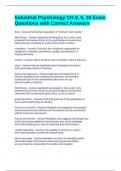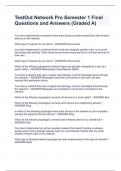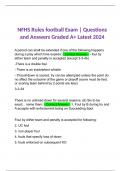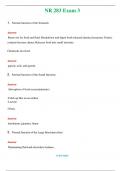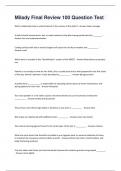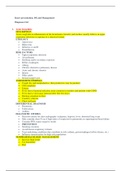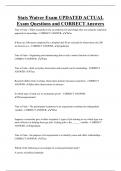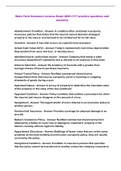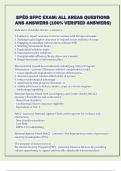Exam (elaborations)
Industrial Psychology CH 8, 9, 10 Exam Questions with Correct Answers
- Course
- Institution
drive - Answer-Nonhuman equivalent of "motives" and "needs." field theory - Answer-Approach developed by Kurt Lewin, who proposed that various forces in the psychological environment interacted and combined to yield a final course of action. motivation - Answer-Concerns the conditions respo...
[Show more]
